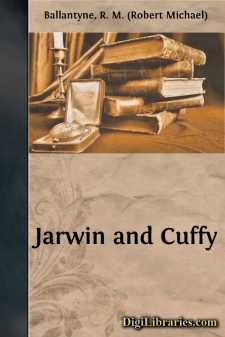Categories
- Antiques & Collectibles 13
- Architecture 36
- Art 48
- Bibles 22
- Biography & Autobiography 815
- Body, Mind & Spirit 144
- Business & Economics 28
- Children's Books 18
- Children's Fiction 14
- Computers 4
- Cooking 94
- Crafts & Hobbies 4
- Drama 346
- Education 58
- Family & Relationships 59
- Fiction 11834
- Games 19
- Gardening 17
- Health & Fitness 34
- History 1378
- House & Home 1
- Humor 147
- Juvenile Fiction 1873
- Juvenile Nonfiction 202
- Language Arts & Disciplines 89
- Law 16
- Literary Collections 686
- Literary Criticism 179
- Mathematics 13
- Medical 41
- Music 40
- Nature 179
- Non-Classifiable 1768
- Performing Arts 7
- Periodicals 1453
- Philosophy 65
- Photography 2
- Poetry 896
- Political Science 203
- Psychology 44
- Reference 154
- Religion 515
- Science 126
- Self-Help 85
- Social Science 83
- Sports & Recreation 34
- Study Aids 3
- Technology & Engineering 59
- Transportation 23
- Travel 463
- True Crime 29
Our website is made possible by displaying online advertisements to our visitors.
Please consider supporting us by disabling your ad blocker.
The Island Queen
Categories:
Description:
Excerpt
Dethroned by Fire and Water—A Tale of the Southern Hemisphere.
The Open Boat.
Early one morning, in the year 18 hundred and something, the great Southern Ocean was in one of its calmest moods, insomuch that the cloudlets in the blue vault above were reflected with almost perfect fidelity in the blue hemisphere below, and it was barely possible to discern the dividing-line between water and sky.
The only objects within the circle of the horizon that presented the appearance of solidity were an albatross sailing in the air, and a little boat floating on the sea.
The boat rested on its own reflected image, almost motionless, save when a slight undulation of the water caused the lower edge of its reflection to break off in oily patches; but there was no dip of oars at its sides, no rowers on its thwarts, no guiding hand at the helm.
Evidently the albatross regarded the boat with curiosity not unmixed with suspicion, for it sailed in wide circles round it, with outstretched neck, head turned on one side, and an eye bent inquiringly downward. By slow degrees the circles diminished, until the giant bird floated almost directly over the boat. Then, apparently, it saw more than enough to satisfy its curiosity, for, uttering a hoarse cry, it swooped aside, and, with a flap of its mighty wings, made off towards the horizon, where it finally disappeared.
The flap and the cry seemed, however, to have put life into the little boat, for a human head rose slowly above the gunwale. It was that of a youth, of about twenty years of age, apparently in the last stage of exhaustion. He looked round slowly, with a dazed expression, like one who only half awakes from sleep. Drawing his hand across his brow, and gazing wistfully on the calm sea, he rose on his knees with difficulty, and rested his arms on a thwart, while he turned his gaze with a look of intense anxiety on the countenance of a young girl who lay in the bottom of the boat close beside him, asleep or dead.
“It looks like death,” murmured the youth, as he bent over the pale face, his expression betraying sudden alarm; “and it must—it must come to this soon; yet I cannot bear the thought. O God, spare her!”
It seemed as if the prayer were answered at once, for a fluttering sigh escaped from the girl’s bloodless lips, but she did not awake.
“Ah! sleep on, dear sister,” said the youth, “it is all the comfort that is left to you now. Oh for food! How often I have wasted it; thought lightly of it; grumbled because it was not quite to my taste! What would I not give for a little of it now—a very little!”
He turned his head away from the sleeping girl, and a wolfish glare seemed to shoot from his eyes as they rested on something which lay in the stern of the boat.
There were other human beings in that boat besides the youth and his sister—some still living, some dead, for they had been many days on short allowance, and the last four days in a state of absolute starvation—all, save Pauline Rigonda and her little brother Otto, whose fair curly head rested on his sister’s arm....












